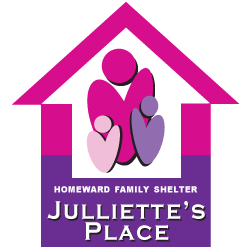How to Conceal Your Internet (Online) Searches:
When using the Internet to access sites for information about woman abuse from your personal computer, your abuser could find out what sites you have visited. Because the Internet browser you use (e.g., Internet Explorer, Google, Safari, etc.) records the web sites you have visited, your safety could be jeopardized if your abuser were to check this browser history.
Safety tips:
- If possible, search online from a friend’s house, your workplace, public library, or Internet cafe.
- Clear your computer’s memory (or web browser’s “cache”) of the most recent pages you have accessed. By emptying your computer’s cache the sites you visited will be deleted. Afterwards, visit sites on other subjects such as health, children, schools, government, or entertainment to disguise the real intent of your web searches.
1. If you use Internet Explorer:
- Pull down the Tools menu
- Select Internet Options
- Choose the General tab, under Temporary Internet Files
- Click on “Delete Files”; Under History, click on “Clear History”, then click “OK”.
2. If you use Mozilla Firefox:
- From the toolbar at the top of the page select “Tools”
- Then click on “Options” and click on “Privacy”
- Under the history tab, click on “Clear Browsing History
- Under the Cookies tab, click on “Clear Cookies”
3. If you use Safari:
- From the toolbar menu select “History”
- Scroll down and select “Clear History”
Not sure which browser you are using? Find out by accessing the Help menu, and clicking on “About”.
Types of Abuse
Physical Abuse includes bodily harm, discomfort or injury including hitting, punching, slapping, kicking, pushing, burning, biting, torture, restraining, assault with a weapon, withholding of food and/or medical care, and/or murder.
Psychological/Emotional Abuse is any act that provokes fear, diminishes the woman’s dignity or sense of self-worth, and/or intentionally inflicts psychological trauma as a means of exerting power and control over the woman. Psychological abuse can include criticism, degradation, humiliation, excessive possessiveness, threats (suicidal, homicidal, deportation, kidnapping children, harming family, friends and/or pets), controlling a person’s daily activities, social isolation, and/or purposeful destruction of property and/or pets.
Sexual Abuse includes any act of forced sexual activity, sexual harassment, unwanted sexual touching, the refusal to use protection from STD’s or unwanted pregnancy during sex, and forced exposure to, or participation in pornography or prostitution.
Verbal Abuse is the use of vexatious comments that are known or that ought to be known to be unwelcome, threatening, degrading, offensive, and/or embarrassing.
Economic/Financial Abuse is the misuse of an individual’s money or belongings by another individual. Economic abuse includes, but is not limited to the withholding and/or restricting of money needed for food and/or clothing; denying the right to seek and/or maintain employment; taking personal money; denying independent access to money; and/or excluding the victim from financial decision-making.
Spiritual Abuse includes degrading another person’s spiritual beliefs, withholding the means to practice, and/or forcing adherence to a belief system.
Bill of Rights for Abused Women*
- I have the right not to be abused.
- I have the right to express anger over past abuse.
- I have the right to change the situation.
- I have the right to freedom from fear of abuse.
- I have the right to request and expect assistance from police or social agencies.
- I have the right to share my feelings and not be isolated from others.
- I have the right to want a better role model of communication for my children.
- I have the right to be treated like an adult.
- I have the right to leave the abusive environment.
- I have the right to privacy.
- I have the right to express my own thoughts and feelings.
- I have the right to develop my individual talents and abilities.
- I have the right to legally prosecute the abusing spouse.
- I have the right not to be perfect.
*Source: Adapted from “Battered Wives and Powerlessness” by Patricia G. Ball and Elizabeth Wymen. Courtesy of Peel Committee Against Women Abuse
Violence Against Women Statistics*:
Were you aware that….
- 67% of Canadians know a woman who has experienced physical or sexual abuse.
- Half of all women in Canada have experienced at least one incident of physical or sexual violence since the age of 16.
- In 2018, a total of 148 women and girls were killed by violence in Canada.
- In 2019, on average, every two and a half days one woman or girl is killed in this country.
- Indigenous women are killed at six times the rate of non-Indigenous women.
- On any given night in Canada, more than 6,000 women along with their children are living in an emergency shelter because it is not safe at home.
- 300 women and children are turned away from shelters on any given night in Canada because they’re full.
- 82% of those under 18 who experience sexual assault are girls.
- There were 1,181 cases of missing or murdered Aboriginal women in Canada between 1980 and 2012, according to the RCMP.
- Women are at greater risk of experiencing elder abuse from a family member, accounting for 60% of senior survivors of family violence.
Source: The Canadian Women’s Foundation www.canadianwomen.org
Help women and children facing abuse by donating now to Julliette’s Place!
Contact Us
Homeward Family Shelter (Julliette’s Place)
#219 – 1371 Neilson Road
Scarborough, Ontario
M1B 4ZA
Financial (cheque) donations may also be mailed to this address; or processed immediately by Credit Card/Pay Pal
Crisis Line: 416-724-1316
